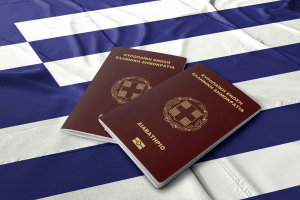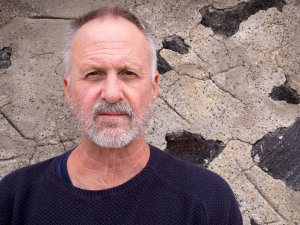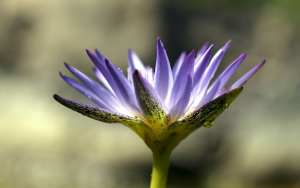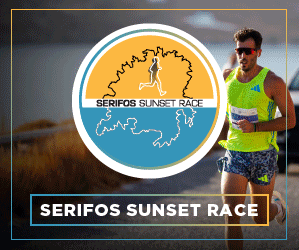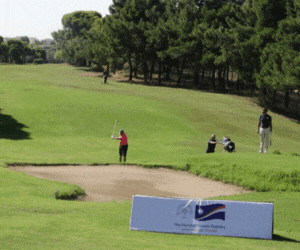LIFE & CULTURE
XpatAthens
Claiming Greek Citizenship By Descent: What You Need To Know
Thinking about reconnecting with your Greek roots? Here’s a simplified breakdown of how you might be eligible for Greek citizenship by descent:
- Parental Heritage: If your mother or father is a registered Greek citizen, you qualify automatically.
- Born in Greece: If you were born in Greece and one parent held legal residency for at least five years before your birth, you're eligible.
- Out-of-Wedlock Birth: If your parents weren’t married, citizenship is granted through a Greek mother. If the father is Greek, legal proof of paternity is required.
- Adoption: Adopted by a Greek citizen before turning 18? You’re entitled to Greek citizenship.
- Third-Generation Greeks: If a grandparent was born in Greece or naturalized, you may apply—though your parent might need to claim citizenship first.
Your eligibility may also depend on when you were born and your parents' marital status at the time. To avoid pitfalls, consult Expat Law early on—accurate legal advice can save time and money.
Building Your Case: The Required Documentation
Once eligibility is confirmed, the next step is to secure your Certificate of Registration, the official record of your status as a Greek citizen. Here's what you'll need:
- Valid passport and birth certificate
- Christening/baptism certificate (if applicable)
- Passport-sized photo that adheres to official guidelines
- Your children's birth and baptism records (if applying for them too)
- Parents’ marriage certificate, indicating civil or religious union
- Parents’ and grandparents’ birth certificates (plus death certificates, if needed)
- Proof of Greek municipal registration
- Divorce or name change documentation (if applicable)
- Recent criminal record certificate
- Certified Greek translations of all documents
- Registration of foreign marriages in the Special Registry of Athens.
Once everything is in order, you will book an appointment with the Greek consulate closest to you and submit your application along with a €150 fee. Keep in mind, though, that processing may take up to two years, so plan ahead.
The Application Process
With documents in hand, you’re ready to submit your file to Greek authorities. A carefully assembled application boosts your chances of approval—every accurate document and form gets you closer to reclaiming your heritage.
The Perks of Greek Dual Citizenship
Greece allows dual nationality, meaning you don’t have to give up your existing citizenship. As a Greek citizen, you gain:
- The right to live and work in Greece and across the EU
- Access to Greek public healthcare and education
- Voting rights in Greek elections
But citizenship also comes with duties. Be sure to understand any tax obligations or, for male citizens, mandatory military service requirements.
Let Expat Law Guide You
The journey to Greek citizenship can be complex, but you don’t have to do it alone. Expat Law offers personalized legal support tailored to your unique background, including in-depth guidance for more complicated cases like asylum, deportation defense, and dual nationality.
Contact Expat Law here:
📧 kyveli@expatlaw.gr
📱 +30 694 555 1914 (call or text)
Have questions or need guidance tailored to your case? Don’t hesitate to get in touch—we’re here to help!
Writing With Purpose: Timothy Jay Smith On Greece, Social Justice & Storytelling
After reading Fire on the Island, a suspenseful, heartfelt novel set in a Greek village, I was immediately intrigued by the man behind the story. My review barely scratched the surface of what Timothy Jay Smith brings to the page, and I couldn’t help but want to learn more about this fascinating writer and person.
So, we sat down for a long and heartfelt conversation. Timothy opened up about his life, his work, and his enduring bond with Greece. From planting tens of thousands of trees in Tanzania to founding a prize for political theater, to crafting layered characters drawn from real people, he offers the kind of perspective only a true global citizen can.
We began with the big question...
I’d say for myself: empathetic. I care about people, especially the disenfranchised and that has motivated drives what I do.
For Greece: welcoming.
Thank you, Tim, for sharing your stories, your passion, and your heart with us. It’s been a pleasure getting a deeper look into the life behind Fire on the Island, and the purpose behind every page!
Want to learn more about Tim? Visit his website and grab your copy of Fire on the Island HERE!
The Wellness Hub By Wellness Retreats Greece
Who is Wellness Retreats Greece (WRG)?
What is the Wellness Hub by Wellness Retreats Greece?
Through this dynamic wellness directory, you can explore or list a wide range of wellness offerings across Greece — from the islands to the mountains and everywhere in between. Discover carefully curated:
- Retreats & Gatherings
- Spaces & Venues
- Wellness Professionals
- Workshops & Trainings (coming soon)
- Spas & Wellness Centres (coming soon)

Complete Range of Services by Wellness Retreats Greece
- For wellness professionals: Whether you're hosting your first retreat or you're an experienced teacher looking to expand, we offer strategic guidance, event planning, and hands-on support.
- For hospitality venues: If you're a hotel or villa owner looking to enhance your wellness offerings, we help you develop unforgettable guest experiences that align with global wellness trends.
- Just starting out? WRG provides tailored support for new wellness professionals ready to launch their journey with confidence.
Wellness Retreats Greece Powers Wellness On XpatAthens!
As part of this partnership, Wellness Retreats Greece will exclusively handle all wellness-related content, initiatives, and collaborations featured on XpatAthens. The recently launched Wellness Hub section serves as the go-to destination for curated content, events, retreats, and services that align with a conscious, healthy, and balanced lifestyle in Greece.
🌿 Discover the Wellness Hub: https://www.xpatathens.com/wellness-hub
📩 For collaborations and wellness listings visit: https://www.wellnessretreatsgreece.com/get-listed-english
Wellness Retreats Greece is the ultimate platform for discovering, listing, creating, and consulting on wellness experiences across Greece. It serves as a trusted hub for individuals, wellness professionals, and companies seeking to explore, organize, or receive expert guidance on retreats, workshops, and wellness gatherings in some of the most inspiring destinations in the world.
Align By Alin - Holistic Wellness & Movement Studio

Alin Batanian - Yoga & Pilates Instructor

As a dancer, she has taught classical ballet at the Gymnastics Club of Irakleio Attikis (2010–2011) and contemporary dance at The Henny Jurriëns Foundation in Amsterdam (2012). She has performed in productions across the Netherlands, Germany, Spain, and Portugal (2012–2014) under the choreography of Manuel Ronda.
In Greece, she has collaborated extensively with choreographer Menti Mega on projects such as Unlimited Access—a European program supporting professional dancers and individuals with motor, cognitive, or visual impairments (2014–2016); the educational program Triples and Triplets (2017–2018); and the performance Sweet Abyss (2015). She also participated in the 3rd Young Choreographers Festival at the Onassis Cultural Centre (Fläche en Handfläche by Ioanna Angelopoulou, 2015) and in Stavros Petropoulos’ documentary I Am a Dancer (2016), all produced by the Onassis Foundation.
In recent years, she has worked closely with Irini Kourouvani, organizing dance workshops and performances in public primary schools across Attica. These initiatives, part of the International Olympic Truce Centre’s educational programs, aim to help children reconnect with their bodies, explore rhythm and movement as forms of expression, and embrace the diversity of every body.
She also volunteers with the “Pisti” Association at the “Agia Sofia” Children’s Hospital in Athens, offering dance therapy and yoga sessions to young patients and their families in the Pediatric Oncology-Hematology Unit (POAIM – K.E.TH.).
Certifications
-
Professional Dance School “Rallou Manou” (2011)
-
200-Hour Yoga Teacher Training (The Yoga Studio Marousi)
under Course Director Swami Nirvikalpananda (Olga Alexiou) and Lead Trainer Mahatman (Michalis Evangelidis) – Yoga Alliance International Certified -
120-Hour Bahiranga Restorative Yoga for Musculoskeletal Pain (Nada Yoga Place) with Lead Trainer Mahatman (Michalis Evangelidis)
-
120-Hour Bahiranga Holistic Healing Aspects of Yoga (Nada Yoga Place) with Lead Trainer Mahatman (Michalis Evangelidis)
-
60-Hour Aerial Flow Yoga Teacher Training (Kyklos Aerial Lab)
with Aggeliki Sotiropoulou -
Advanced Level II in the Royal Academy of Dance (R.A.D.) training program, studying classical ballet under Carol Hanis and reaching.
🌐 https://alignbyalin.gr
Digital Nomad Visa Or Residence Permit in Greece? Here’s How To Choose
At a Glance: Key Differences
|
Digital Nomad Visa |
Digital Nomad Residence Permit |
|
|
Validity |
Up to 12 months |
Two years (renewable) |
|
Application Point |
From abroad via a Greek consulate |
From within Greece |
|
Best For |
Short stays, flexibility |
Long-term plans, family relocation |
|
Conversion |
Can convert to residence permit before expiry |
N/A |
1. The Digital Nomad Visa
- Easy to apply from abroad
- Suitable for remote workers testing the waters in Greece
- No commitment to permanent relocation
- Potential tax benefits (depending on stay duration and tax residency)
- Proof of non-Greek employment or business
- Minimum income of €3,500/month (plus 20% for a spouse, 15% per child)
- Valid health insurance and clean criminal record
- Declaration of intent to work remotely while living in Greece
- Health Certificate that assures good health and absence of certain diseases.
- Valid for two years, renewable
- Ideal for families or those seeking stability
- Can be a step toward permanent residency
- Avoids dealing with consulates abroad
- Remote employment (non-Greek source)
- Minimum income of €3,500/month, with an increase for dependents.
- Proof of housing in Greece (rental lease or property ownership)
- Comprehensive health insurance
- Financial documents proving stability may be required
- You’re planning to stay under a year
- You prefer applying before arriving in Greece
- You're still exploring long-term possibilities
- You’re aiming for a multi-year stay
- You want a solution that accommodates family
- You’re already in Greece and want to apply locally
No. Both options are strictly for remote work with employers/clients outside Greece.
If you stay less than 183 days/year, you may not become a tax resident. Longer stays could change that. It's best to consult a tax advisor.
Yes, but your monthly income must increase to cover dependents. The residence permit generally offers better support for families.
The visa can take a few weeks after your consulate appointment. Residence permits often grant a temporary approval within 15 days, with full processing taking a few months.
Inheriting Property In Greece As A Non-Resident: What You Need To Know
Step 1: Get a Greek Inheritance Lawyer on Your Side
- Identify what assets and debts are part of the estate
- Advise whether it’s smarter to accept or reject
- Prepare and submit all necessary court declarations
- Properties, bank accounts, and other assets
- Any outstanding debts tied to the estate
Cost-Effective Small Moves
Mini Moves is not your usual moving service, it’s a simplified process to save you time, money and stress! This service has been specially crafted for smaller removals like a few boxes, a couple of suitcases, smaller personal essentials or the odds and ends left at the end of a move.
Whether you’re moving to another city or overseas, Mini Moves is a streamlined service designed to meet smaller-scale moving needs. Enjoy all the professionalism, reliability, and care that Celebrity Movers is known for, but with just the right scale for what you need to move.
Why Use Mini Moves?
> Affordable & Efficient
Tailored for small moves, Mini Moves ensures you get high-quality service at a competitive price.
> Flexible Coverage
Whether it’s something local, national or an international transfer, you're covered!
> Professional Handling
Trusted professionals take care of your belongings so that you have total peace of mind.
How It Works
1. Visit Mini Moves on Celebrity’s Website.
2. Scroll to the bottom of the page to select your Collection and Destination country.
3. Click Continue.
4. Complete the quote process.
Get in touch with us if you have questions or would like to speak with someone about a Mini Move!
Celebrity Powers Relocation On XpatAthens!
Celebrity is a relocation specialist with four decades of experience in the industry; they deliver seamless, end‑to‑end relocation services for expats, digital nomads, families, and businesses moving to, from, or within Greece.
Celebrated for our deep local expertise, this partnership empowers XpatAthens to share a full service portfolio—ranging from relocation and visa support to tax guidance, property consulting, and business setup assistance. Our relocation offerings simplify administrative processes such as AMKA/AFM registration, bank account opening, and residency permits like Digital Nomad & Golden Visas, and much more!
By combining XpatAthens’ intimate knowledge of living and working in Greece with Celebrity’s logistical prowess, together we offer unmatched peace of mind when it comes to relocation services in Greece.
Some of our partnership highlights include:
> Integrated relocation support from pre-move orientation through to move and arrival support.
> Comprehensive practical assistance, including visa, tax, property, legal, and insurance guidance.
> Secure, full‑service moving and settling-in solutions, including home search, and property management.
> Bilingual support and concierge services, ensuring smooth transitions and cultural integration.
XpatAthens through our contact form here.
Celebrity through their website here.


